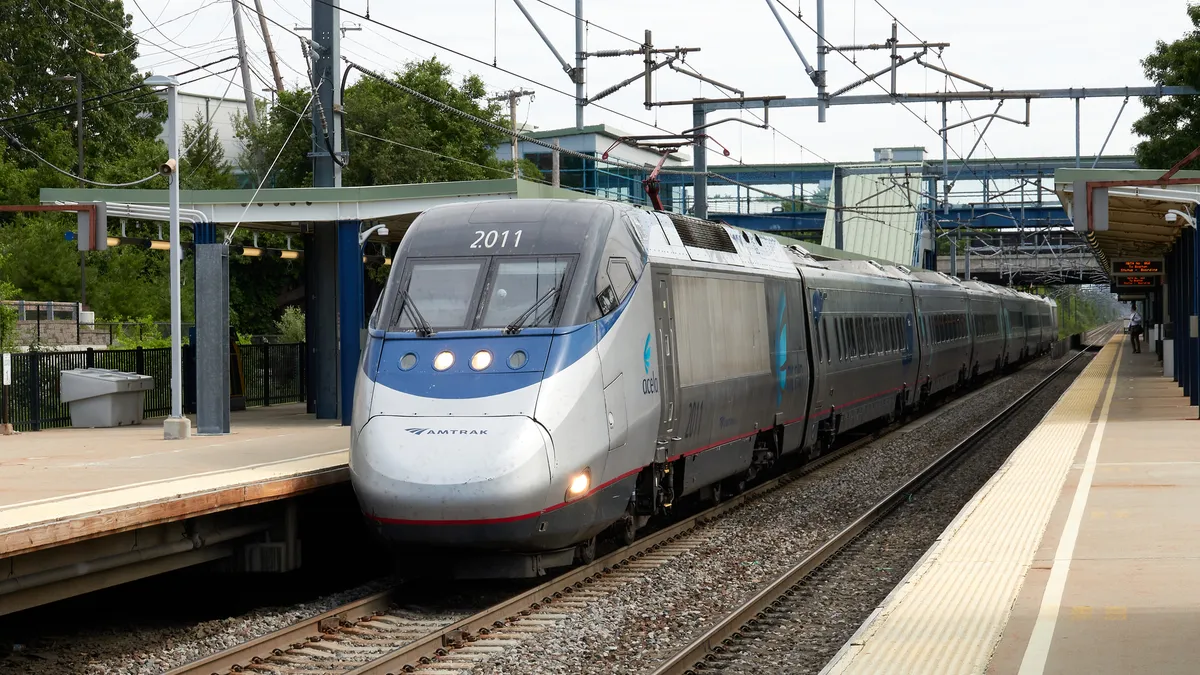Dive Brief:
- Amtrak and the Transport Workers Union of America will partner to create an apprenticeship pilot program that would allow participants to become full mechanics at the rail operator, the two organizations announced May 10.
- Under the three-year program, all participants will take courses on safety, environmental awareness, personal protective equipment and other topics. From there, apprentices meet their mentors and participate in classroom and hands-on training before moving to craft-specific training, Amtrak said. The program will be open to new and existing Amtrak employees.
- “Working people aren’t just looking for jobs – they want meaningful careers they can raise families on, in positions where they feel seen, heard, and invested in,” John Feltz, director of the Transport Workers Union’s rail division, said in a statement. “Apprenticeship and effective training programs, just like this one, are proven ways to grow workforces, attract and retain the right talent, and help working people expand their skillsets.”
Dive Insight:
The program is being developed with funding from last year’s Infrastructure Investment and Jobs Act, according to Amtrak, marking the latest in a series of investments in apprenticeships by the federal government.
In March 2021, the U.S. Department of Labor made $87.5 million in grants available to expand registered apprenticeships, and later awarded more than $8 million in contracts to organizations looking to expand apprenticeships in industries particularly impacted by the pandemic.
DOL also signed a memorandum of understanding last year with Switzerland with the intent to promote an idea exchange between the two counties with respect to apprenticeships. As part of the announcement, Secretary of Labor Marty Walsh called registered apprenticeships, which are validated by DOL or a state apprenticeship agency, “a proven learn-while-you-earn model and path to good paying, middle class jobs.”
Employers that utilize apprenticeships often tout the advantages the model provides in attracting needed talent, particularly when the existing talent pools run dry. Policy advocates, meanwhile, believe apprenticeships can open doors for previously overlooked talent, including workers with disabilities.
But the model may not be popular with many employers, according to a 2017 Urban Institute report, as members of the public may have a negative perception of apprenticeships compared to traditional higher education. The organization said it has called on policymakers to set national standards and credentialing to encourage employers to offer apprenticeships.













